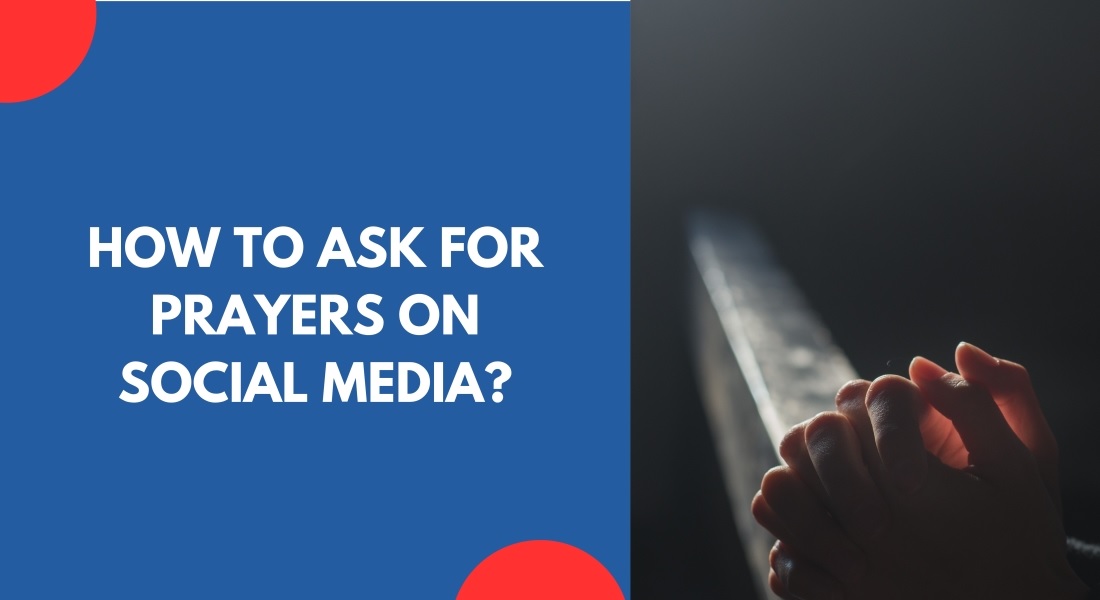
Asking for prayers and support on social media during difficult times can be comforting. The kindness of friends, family, and even strangers can lift spirits. However, prayer requests also involve sharing private matters publicly. Finding the right words is key.
This guide covers writing tasteful, positive social media posts asking for prayers. We provide 8 example posts for various situations. Tips help craft messages showing authenticity and avoid oversharing.
Why Ask for Prayers on Social Media?
Social media allows connecting with loved ones near and far. It helps find communities that relate to specific experiences. During hardship, these connections provide:
- Emotional support through difficult times
- Encouragement from people who relate to a situation
- Extra blessings and positive energy from prayers
- Accountability to stay strong
Asking for prayers online allows efficiently reaching many caring people. It also spreads awareness for causes needing more support. As long as the focus stays positive, prayer posts can inspire rather than drag others down.
Read More: What is Health and Wellbeing 2024
8 Example Social Media Prayer Request Posts
The following real-life examples demonstrate respectful ways to ask for prayers online. They cover a range of situations from personal struggles to broader social issues.
1. General prayers for health issues:
“Going through some health struggles recently. I appreciate all the good vibes and prayers 🙏 Tests are still underway to determine the next steps. I will share more information as I’m able. In the meantime, hope everyone enjoys this beautiful weather!”
Key features:
- Vague description of health issue
- Focus on positivity
- Gratitude for support
- Lighthearted pivot towards something upbeat
2. Prayers for sick relatives:
“My grandma was hospitalized yesterday with heart troubles. It’s been a scary time for our family. Please keep her in your thoughts and prayers as she undergoes surgery today so her sweetheart can keep on shining brightness into this world 💗”
Key features:
- Clarifies relationship
- Gives reason for hospitalization
- Focuses on positive aspects around this person
3. Prayer for death in the family:
“With deep sadness, I share that my cousin Lauren passed away in a tragic accident last night. We are devastated. Please send prayers to comfort our family and heal our hearts 💔 Donations to her medical fund would help cover unexpected final expenses.”
Key features:
- States relationship
- Explains situation was a tragic accident
- Politely asks for comforting prayers
- Adds optional donation information
4. Prayer for external hardship:
“My heart breaks for the communities affected by these devastating wildfires. To all in the fire zones, you are in my thoughts and prayers 🙏 Here are some great organizations providing shelter, emergency aid, and mental health resources:”
Key features:
- Acknowledges distress
- Leads with emotional support
- Provides helpful resources
5. Prayer for weather safety:
“They’re forecasting the hurricane may hit our area overnight as a category 4 😨 My family is hunkering down and praying we get through the storm safely. Good vibes for minimal damage are appreciated!”
Key features:
- Describes anticipated storm severity
- Notes safety precautions taken
- Seeks prayers for personal safety
- Keeps things positive
6. Prayer for job issues:
“Some unexpected things happened at work recently landing me on probation 😞 I’m very committed to improving. As I work through this, prayers for wisdom, strength, and grace under pressure would mean so much!”
Key features:
- A vague description of the situation
- States’ commitment to progress
- Asks for specific helpful virtues
7. Prayer for social cause:
“My heart continues to grieve for the children separated from their parents at border detention facilities. Please pray for justice, wisdom for leaders, comfort for these children, and guidance on how we can help.”
Key features:
- Identifies social issue
- Seeks broad prayer support
- Calls to action for readers
8. Post-op recovery prayers:
“Made it through my operation yesterday just fine, phew! 😅 Please keep those good healing vibes coming as I take it easy and recover over the next few weeks.”
Key features:
- It starts with the celebratory all-clear
- Direct ask for continued prayers
- Upbeat, positive tone
These real examples show many effective ways to share authentic prayer requests. Common courtesy still applies to social media, keeping things:
- Respectful
- Free from graphic detail
- Focused on solutions to complaints
The below tips will further guide writing sensitively and spreading positive energy.
5 Tips for Thoughtful Social Media Prayer Requests
Asking friends and followers to keep someone or something in their thoughts and prayers is completely normal. However, exercise common sense and decency, considering that personal posts appear in public news feeds.
Follow these basic tips when requesting prayers online:
1. Keep details vague or non-specific
Avoid oversharing private information not meant for broad audiences. Use discretion when mentioning names, locations, medical specifics, etc. This protects privacy while still conveying a general need for support.
2. Frame positively when possible
While expressing grief, fear, or outrage is perfectly understandable, try focusing prayer requests around related virtues, strengths, or solutions. This prevents dragging social media communities down.
3. Clarify ways followers can help
Offer clear suggestions for assisting beyond just prayers if relevant. This could include links to donation pages, charities assisting, or community action groups. Enable people to contribute in tangible ways.
4. Give sincere thanks
Express genuine gratitude to those offering kind thoughts, prayers, and other assistance. Follow up with appreciation posts after the situation improves. This spreads positive energy.
5. Avoid constant plea posts
Do not beat followers over the head with the same requests daily. Stick to important updates or developments to prevent message fatigue.
The above tips aim to help social media users thoughtfully request prayers while being respectful of audiences. Reality is messy, so have grace for others trying their best.
Conclusion
Asking for prayers, positive thoughts, or good vibes on social media serves meaningful purposes. It spreads awareness of people’s real struggles needing more support while also building feelings of community.
However, take care to avoid oversharing private details publicly. Focus prayer requests on relevant positive sentiments, strengths, or solutions whenever reasonably possible to prevent bringing others down.
Provide followers with specific ideas on how they can assist beyond just keeping someone in their thoughts and prayers. Then be sure to express gratitude.
With conscientious attention to tone and transparency, social prayer requests allow conveniently connecting with caring people when needing comfort most. They can bring out social media’s better angels rather than spotlighting life’s messier demons.
FAQs
Should I ask for prayers on social media?
It is completely acceptable to utilize social networks to ask others to keep someone or something in their thoughts and prayers. This spreads awareness of struggles needing more support in positive ways.
What details should I avoid sharing in public prayer posts?
Use discretion when sharing medical specifics, names, locations, or other private details not meant for broad public consumption. Vague descriptions of the general situation are better.
How can I word prayer requests positively?
Rather than graphic descriptions of distress, try focusing the sentiment around relevant virtues, strengths, or solutions. Requests for things like wisdom, courage, grace, etc. prevent dragging others down.
Why recommend keeping prayer requests positive?
While expressing grief or outrage has its place, constant negative posts risk message fatigue, especially for vague acquaintances. Framing prayer requests constructively better achieves the goal of garnering more support.
Should I follow up on prayer requests with thanks?
Yes, always circulate appreciation posts thanking those who offered supportive thoughts, prayers, or other assistance after a situation improves. This spreads positive energy.
Mustafa Al Mahmud is a passionate medical writer and health enthusiast. He is excited to share his knowledge and make reliable health information more accessible through Quick Medico. Mustafa aims to write about common diseases, medications, wellness topics, and the latest health research in easy-to-understand language. He believes clear and accurate health communication empowers readers to take charge of their well-being. In his free time, Mustafa enjoys hiking, cooking, and spending time with his family.



